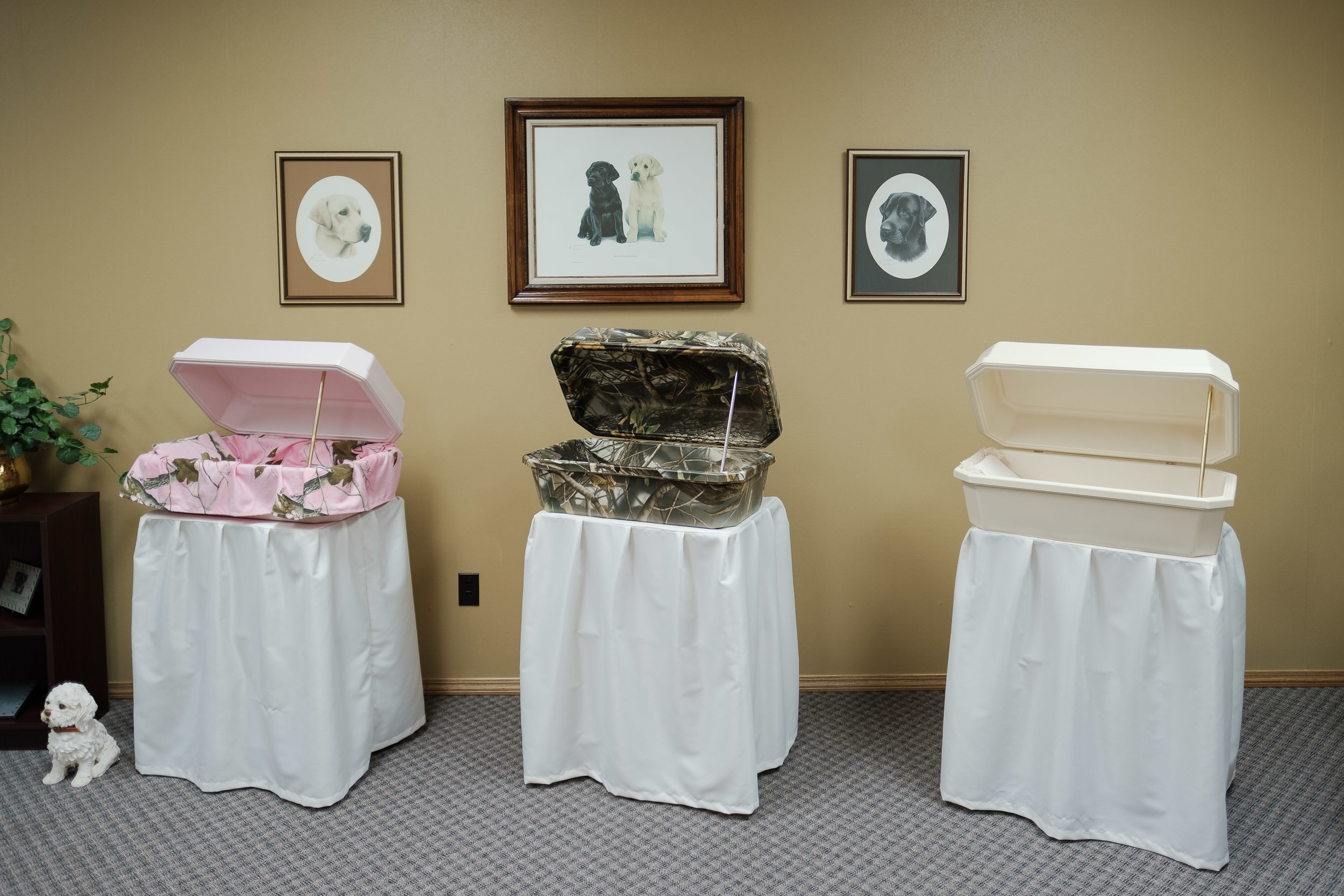I went to the pet casket factory on a whim. I read that they give tours if you call ahead, so I did. My guide breezily led me across the small factory floor, pointing out every step of the plastic molding process in detail. He didn’t ask me why I wanted a tour. I didn’t know either.
“We make nice, mid-range pet caskets. Some people want something nice, but don’t want to spend $500 or $1000 on one. Some people prefer the $80 or $100 option.”
“They say our pet caskets degrade in 100 years, but I don’t know. We’ve been in business for about 58 years, a couple have been dug up for various reasons. They were all fine."
“We make caskets as small as 10 inches, for hamsters and whatnot. We also make ones up to 58 inches, for Great Danes."
“Business is fine. We have some competition, and more and more people are opting for cremation. But we also manufacture urns. So we do okay.”
“All of our bedding is sewn by two people right here in town. Our cardboard boxes are made locally too, which we use for shipments.”
“When we grind down the plastic edges of our caskets to make them smooth, we save all the plastic particles. We get a discount from our plastic supplier when we recycle. They pay us per pound of plastic dust. So we don’t waste anything.”
My guide runs his hand through the dust, which sits in a bag, which sits in a box. The small, crumbly, beige particles stick to his fingers.
After I sign the guest book, they encourage me to take a pen with the company name on it. They also had rulers and bumper stickers. I take several. It’s all free, and slightly silly. The receptionist laughs along with me. “You seem to have a good sense of humor,” I say to her.
“In this business,” she replies, looking over her glasses, “you have to.”

